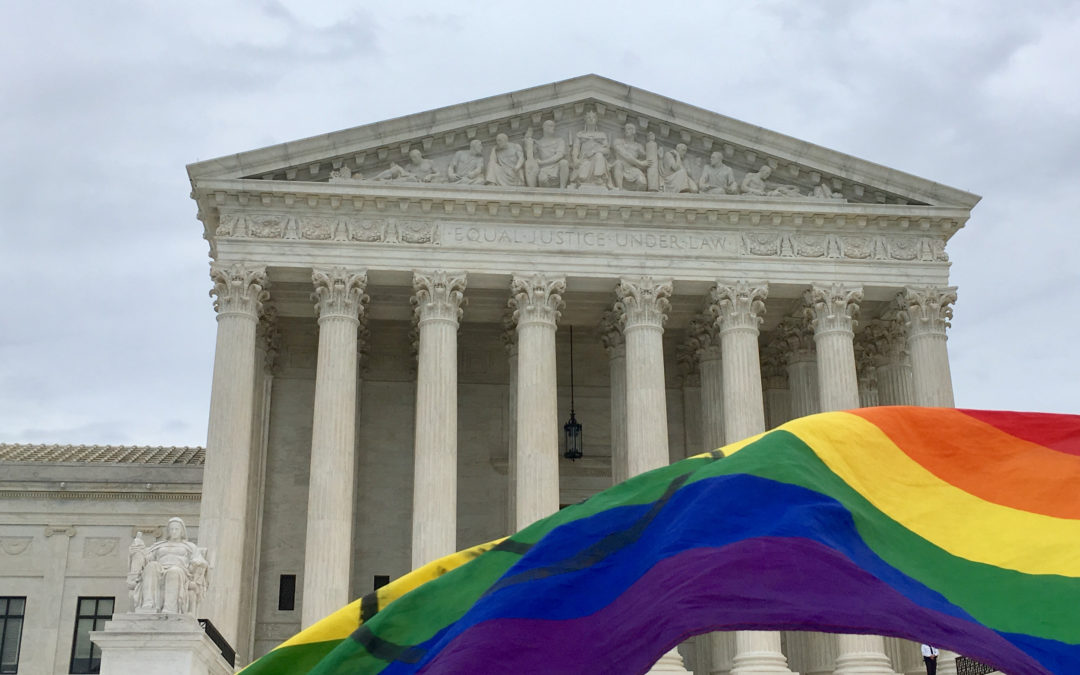The brief, filed in support of the respondents, highlights the importance of public accommodation laws in preventing discrimination and argues against free speech exceptions.
WASHINGTON– On Friday, The Lawyers’ Committee for Civil Rights Under Law, along with the law firm of McDermott Will & Emery LLP, and eight other civil rights organizations filed an amicus brief in the U.S. Supreme Court in 303 Creative LLC v. Elenis, asking the Court to uphold a Colorado law that makes it illegal for private businesses to deny goods or services to anyone on the basis of their disability, race, creed, color, sex, sexual orientation, marital status, national origin, or ancestry.
A website design company is challenging the law as a violation of free speech, so it can have the right to deny services and to advertise that it refuses to provide services to same-sex couples who wish to purchase the company’s wedding websites. The brief argues that the government’s interest in preventing and eradicating discrimination against historically marginalized groups outweighs a business owner’s right to discriminate in the provision of goods or services. The brief explains the historical roots of public accommodation laws, which were designed to prohibit private businesses from discriminating on the basis of race after many decades of hard-won progress by the Black community to gain equality in the public marketplace.
“The sad reality is that even today, people of color, including those who are LGBTQ+, are still most likely to face discrimination in the marketplace, being denied the same access to goods and services as white or non-LGBTQ+ consumers,” said Damon Hewitt, President and Executive Director of the Lawyers’ Committee for Civil Rights Under Law. “Amidst the continued threat of denial of services, public accommodation laws remain an essential tool for ensuring access to services, promoting equality, and providing relief when consumers experience discrimination. Any argument that the First Amendment somehow trumps these protections, which are grounded in the Fourteenth Amendment, is wrong as a matter of law, logic, and common decency. Put simply, businesses should not be allowed to evade these laws by claiming freedom of speech. Complying with nondiscrimination laws is a basic cost of doing business.”
The brief provides the historical context of public accommodation laws and the role they continue to play in preventing businesses from depriving individuals of dignity and equality on the basis of their identity. It argues that a ruling allowing the website designer to lawfully withhold services from LGBTQ+ persons on the grounds of free speech would open the door for other businesses to deny services on the basis of other protected characteristics, such as race and national origin.
As part of our continued commitment to addressing discrimination in all facets of public and private life, we also filed an amicus brief in a prior Supreme Court case, Masterpiece Cakeshop v. Colorado Civil Rights Commission along with a brief in Carpenter v. James before the Second Circuit.


